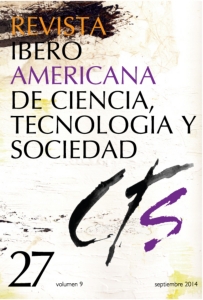Latin America in the international geopolitics of knowledge
DOI:
https://doi.org/10.52712/issn.1850-0013-583Keywords:
geopolitics of knowledge, higher education, Latin AmericaAbstract
Higher or tertiary education holds a central place in contemporary ideology and is supposed to generate a series of key benefits and opportunities for the development and good performance of countries. In fact, this ideology implies that global flows of knowledge, information and ideas enhance productivity and entrepreneurial competitiveness, improve human capital and the use of new technologies, and advance social mobility, the State’s effectiveness and the overall progress in living standards. In turn, these social benefits justify public investment in higher education and its ideal institutional expression, the university. However, one must question the tenets of this ideology. Are the information society and knowledge economy really more egalitarian? Have flows of ideas and publications become any more symmetrical? Are world-class universities within the reach of all countries? Only after addressing these questions will we be able to foresee the possible future roles that Latin America will play in a global knowledge society.
Downloads
References
BRUNNER, J. J. (2011): “Educación y conocimiento: las dos agendas y sus desafíos”, en A. Bárcena y N. Serra (eds.): Educación, desarrollo y ciudadanía en América Latina: Propuestas para el Debate, Barcelona, CEPAL, SEGIB y CIDOB, pp. 39-89.
BRAUDEL, F. (1994): La Dinámica del Capitalismo, Santiago de Chile, Fondo de Cultura Económica.
CASTELLS, M. (2008): Comunicación y Poder, Madrid, Alianza Editorial.
MARGINSON, S. (2010): “The Rise of the Global University: 5 New Tensions”, The Chronicle of Higher Education, Julio 15.
Downloads
Published
How to Cite
Issue
Section
License
Copyright (c) 2024 CC Attribution 4.0

This work is licensed under a Creative Commons Attribution 4.0 International License.
All CTS's issues and academic articles are under a CC-BY license.
Since 2007, CTS has provided open and free access to all its contents, including the complete archive of its quarterly edition and the different products presented in its electronic platform. This decision is based on the belief that offering free access to published materials helps to build a greater and better exchange of knowledge.
In turn, for the quarterly edition, CTS allows institutional and thematic repositories, as well as personal web pages, to self-archive articles in their post-print or editorial version, immediately after the publication of the final version of each issue and under the condition that a link to the original source will be incorporated into the self-archive.











